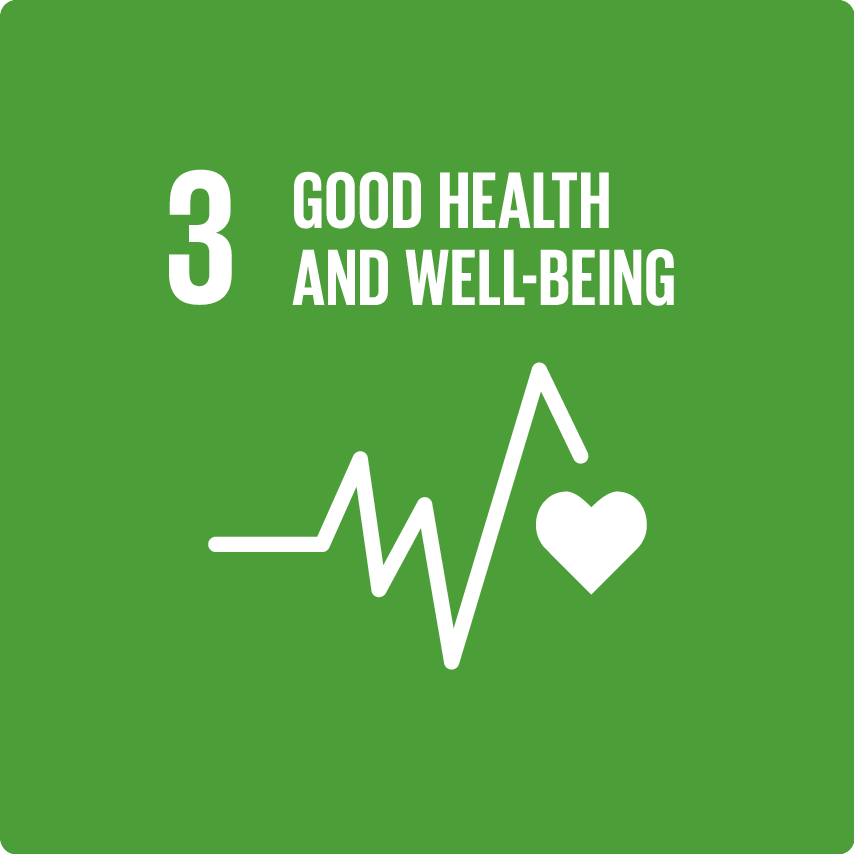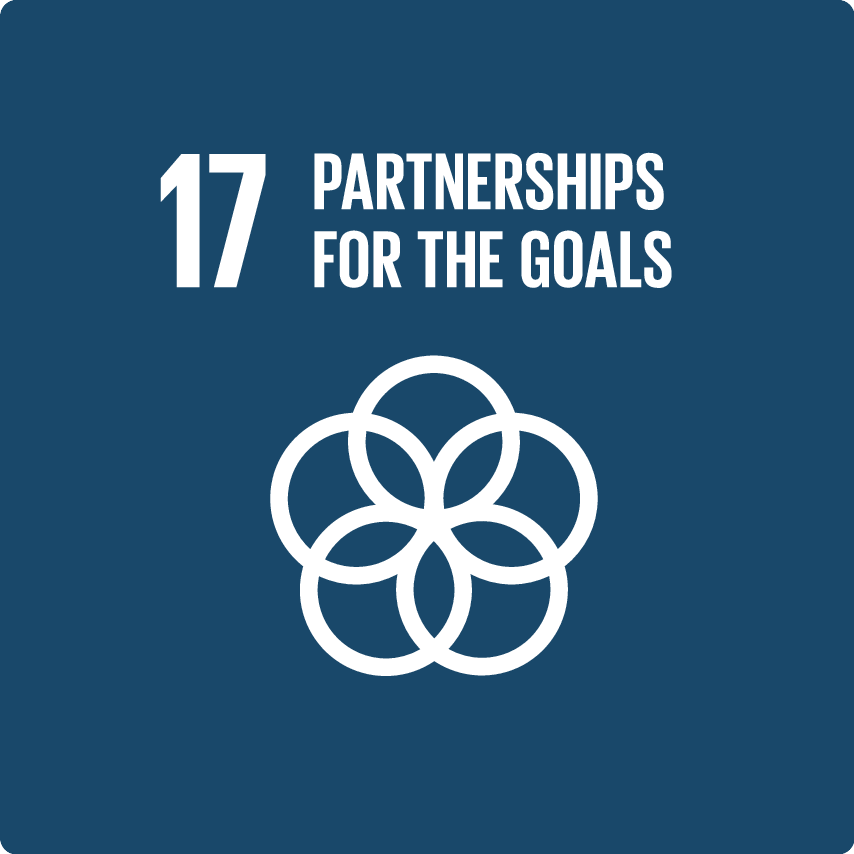Access Accelerated Initiative
Tackling the growing burden of non-communicable diseases in low and middle-income countries and supporting progress towards the Sustainable Development Goals.
SEE ALL PARTNER ORGANIZATIONS
Objectives
Access Accelerated brings together leading private sector life science companies to collectively tackle the growing burden of non-communicable diseases in low and middle-income countries and support progress towards the Sustainable Development Goals. By collaborating with the our strategic partner, the World Bank, we co-create scalable and sustainable solutions to improve people’s health.
NCDs are an urgent public health challenge. In 2015, approximately 75% of deaths due to NCDs occurred in low- and middle-income countries (LMICs); almost half of these deaths occurred in people under age 70 and are considered premature. Many are preventable with proper treatment and care, but health systems still struggle to respond effectively to burgeoning rates of NCDs. Global development assistance for NCDs is low; in 2015, NCDs attracted only 1.3% of all development assistance for health ($475 million). The high cost of NCD-related healthcare and the reduced productivity of patients leads to a loss of household income, trapping people in a cycle of poverty and limiting development more generally. On a larger scale, it is estimated that NCDs will cost LMICs US$21 trillion over the next three decades, posing a significant threat to the achievement of the SDGs.
Description of partnership activities and how they address needs and challenges
Access Accelerated is a unique cross-industry collaboration that seeks to reduce barriers to prevention, treatment and care for NCDs in lower- and middle-income countries (LMICs) through health systems strengthening (HSS) and alignment with Universal Health Coverage (UHC) objectives and priorities. For the first time, leading private sector life sciences companies have come together to bring their global reach and local expertise in partnership with countries, civil society, multilaterals and NGOs to support cross-sectoral dialogue and drive on-the-ground implementation and action plans to address NCDs.
By bridging barriers, breaking down silos and reaching across sectors, Access Accelerated unites the efforts, expertise and experiences of global companies encompassing the private sector life science sector with the World Bank to advance joint action in-country across three key areas:
Informing global and local priorities
- Generating high-level evidence on the economic impact of NCDs through better knowledge, interventions, strategies and measurement.
- Making the economic and human capital case to prioritize addressing NCDs in national health policies with actionable plans that can be integrated into countries’ national Universal Health Coverage (UHC) agendas.
Accelerating public and private investment in NCD prevention, treatment and care
- Establish a portfolio of integrated NCD pilot projects to inform national scale-up and serve as an entry point for innovative financing for NCDs.
- Our partnership with the World Bank has catalyzed a scale up of funding for NCDs.
Optimizing public-private partnership engagement for impact
- We share good practices and key learnings from both the public and private sectors—and how each are contributing to scalable solutions to tackle NCDs—to inform and improve broader NCD efforts.
- Progress tracked against a results-based monitoring and evaluation system is shared to facilitate evidence-based decision-making to guide future NCD programming.
Eisai and Sumitomo Pharma are no longer an active member of this initiative.
Results and milestones
The World Bank Group and Access Accelerated have been working together to accelerate sustainable and scalable solutions to NCD prevention, treatment and care. Together, we aim to improve the quality of care delivered and ensure better access to appropriate treatments for people in low- and middle-income countries.
Across, six years, the partnership has supported over 40 NCD projects across 36 LMICs, supported 15 government commitments through catalysing new public investment in NCDs and informed USD 2.1 billion in health system investment in LMICs.
Access Accelerated have supported the World Bank on 40+ projects, including:
- El Salvador: Country Pilot Project NCDs 2019–2021 Component 1— Health service delivery model for the prevention, early detection and treatment of noncommunicable diseases (NCDs)
- El Salvador: Country Pilot Project NCDs 2019–2021 Component 2— Innovations in the prevention of risk factors
- El Salvador: Country Pilot Project NCDs 2019–2021 Component 3— Monitoring and management
- Bangladesh Urban Health Nutrition and Population Project Europe and Central Asia Region and NCDs
- Addressing mental health in five countries in Latin America and the Caribbean: Ecuador, El Salvador, Paraguay, Peru and Uruguay
- Improving the management of health care services for patients with multiple chronic conditions in three Latin American Countries
- Management of NCDs for human capital development in lower middle-income countries (including countries experiencing fragility, conflict, and violence)
- Myanmar NCD analytics, policy dialogue and technical assistance toward achieving universal health care
- Tackling NCD challenges in Kenya Healthy Longevity Initiative: Healthy Longevity, NCDs and Human Capital Government of Norway’s support for NCD prevention and control interventions in Ghana
From 2017 to 2022, Access Accelerated also partnered with NGOs, City Cancer Challenge, NCD Alliance, PATH, and the World Heart Federation to support countries to improve access to NCD care:
City Cancer Challenge: Access Accelerated supported C/Can with critical seed funding to launch its C/Can network of cities. With the help of Access Accelerated and other strategic partners, C/Can has expanded from supporting four cities in 2017 to 13 in 2022, reaching over 59 million people, supporting more than 2,000 healthcare professionals and developed over 70 solutions to improve access to quality cancer care. Cities around the world, from Cali, Colombia to Nairobi, Kenya, have benefited from the initiative’s reach.
NCD Alliance: The NCD Alliance and Access Accelerated partnership provide examples of meaningfully involving people living with NCDs to facilitate change. Partner projects included supporting individuals with the skills they need to be effective advocates and spokespeople. Following training opportunities in Kenya, representatives of people living with NCDs had the opportunity to share their experiences with decision-makers. As a result, they gained a permanent seat in the Technical Working Group for the development of the new National Strategic Plan for Prevention and Control of NCDs 2020/21– 2025/26, which explicitly considers patients’ experiences and priorities.
PATH: Our joint efforts with PATH aimed to integrate NCD screening into primary health services, through community and patient-centered approaches, strengthen supply chains and to develop and scale digital technologies. Through the work with PATH, close to 215,000 people have been screened and referred as needed for elevated blood pressure and diabetes as part of the Communities for Healthy Vietnam program. In partnership with the respective Ministries of Health, a supply chain assessment for NCD medicines and commodities was completed in Ghana, Kenya, Senegal and Vietnam, and interventions to address barriers, especially for access at the community level, are being implemented.
World Heart Federation: Access Accelerated and the WHF worked in close partnership to respond to the heavy burden of CVDs in some of the most vulnerable communities in Africa and Latin America, including supporting the Act with a woman’s heart, a project by the Colombian Society of Cardiology and the Colombian Heart Foundation. After five months, of the 400 women who took part in the program, positive change was reported in at least two of the behaviors surveyed—consumption of fruits and vegetables and daily physical activity—with an increase in these activities among 95% of the participants. Over 50% of the women reduced their overall body weight as well as waist circumference, and lower blood pressure was recorded in at least 40% of them.
For information on the progress and results of AA member access programs and partnerships, visit the Open Platform.
Geographic Reach
- Global Commitment
Disease Area
- Non-communicable diseases
Partner organizations
City Cancer Challenge
Ono
Additional resources
- accessaccelerated.org
- AA Open Platform
- Access Observatory
- Access Accelerated 2021 Measurement Framework Report
- Unlocking the potential for collective impact - Report
- Accelerating UHC: Key Takeaways
- World Bank Blog: Why we won’t fully realize universal health coverage without addressing the challenge of noncommunicable diseases
- World Bank Project: Rethinking the response to NCDs for aging countries in Europe and Asia
- World Bank Project: Improving Mental Health Series
- Q&A on the Access Accelerated and World Bank partnership
Geographic Reach
Global Commitment
Disease Area
Non-communicable diseases
- Cancer
- Cardiovascular diseases
- Diabetes
- General Noncommunicable Disease Care (Health System)
- Mental and neurological disorders
- Respiratory Diseases
- Other NCDs
- Arthritis
- Blood disorders

